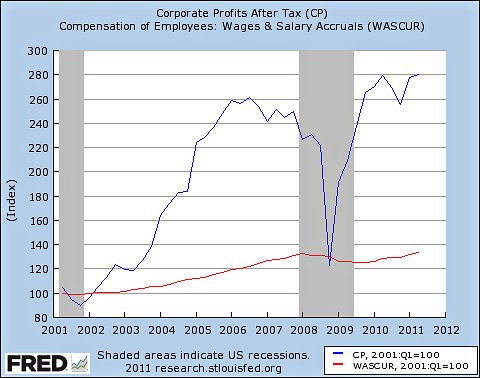The U.S. has had a debt-based banking system since 1864. As a result, it is currently impossible to extinguish government debt without simultaneously extinguishing our money supply. The Federal Reserve, established in 1913, is a for-profit corporation owned by private member banks. It has no reserves to back up the Federal Reserve notes that constitute our common currency.
Here are the thoughts on the subject of some of history’s most illustrious minds .

President Thomas Jefferson
“I sincerely believe that banking institutions are more dangerous than standing armies. The issuing power should be taken from the banks and restored to the people to whom it properly belongs.”

Emperor Napoleon Bonaparte
“The hand that gives is above the hand that takes. Money has no motherland; financiers are without patriotism and without decency: their sole object is gain.”

President James Madison
“History records that the money changers have used every form of abuse, intrigue, deceit, and violent means possible to maintain their control over governments by controlling money and its issuance.”

President Abraham Lincoln
“The Government should create, issue, and circulate all the currency and credit needed to satisfy the spending power of the Government and buying power of consumers. The privilege of creating and issuing money is not only the supreme prerogative of Government, but it is the Government’s greatest creative opportunity. By the adoption of these principles … the taxpayers will be saved immense sums of interest. Money will cease to be master and become the servant of humanity.”

Prince Otto von Bismarck, Minister President of Prussia, Chancellor of Germany
“The division of the United States into federations of equal force was decided long before the Civil War by the high financial powers of Europe. These bankers were afraid that the United States, if they remained as one block, and as one nation, would attain economic and financial independence, which would upset their financial domination over the world.
The death of Lincoln was a disaster for Christendom. There was no man in the United States great enough to wear his boots… I fear that foreign bankers with their craftiness and tortuous tricks will entirely control the exuberant riches of America, and use it systematically to corrupt modern civilization. They will not hesitate to plunge the whole of Christendom into wars and chaos in order that the earth should become their inheritance.”

President Andrew Jackson
“It is not our own citizens only who are to receive the bounty of our Government. More than eight millions of the stock of this bank are held by foreigners… Is there no danger to our liberty and independence in a bank that in its nature has so little to bind it to our country?… Controlling our currency, receiving our public moneys, and holding thousands of our citizens in dependence… would be more formidable and dangerous than a military power of the enemy. If government would confine itself to equal protection, and as Heaven does its rains, shower its favor alike on the high and the low, the rich and the poor, it would be an unqualified blessing. In the act before me there seems to be a wide and unnecessary departure from these just principles.”

President James Garfield
“Whosoever controls the volume of money in any country is absolute master of all industry and commerce… And when you realize that the entire system is very easily controlled, one way or another, by a few powerful men at the top, you will not have to be told how periods of inflation and depression originate.”
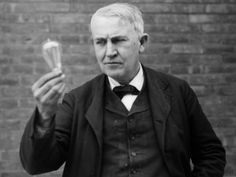
Thomas A. Edison
“If our nation can issue a dollar bond, it can issue a dollar bill. The element that makes the bond good, makes the bill good, also. The difference between the bond and the bill is the bond lets money brokers collect twice the amount of the bond and an additional 20%, where as the currency pays nobody but those who contribute directly in some useful way. It is absurd to say that our country can issue $30 million in bonds and not $30 million in currency. Both are promises to pay, but one promise fattens the usurers and the other helps the people.”

President William McKinley
Debt-free currency issued by the Government, not a private bank
“…There is another duty resting upon the national government – “to coin money and regulate the value thereof.” This duty requires that our government shall regulate the value of its money by the highest standards of commercial honesty and national honor. The money of the United States is and must forever be unquestioned and unassailable. If doubts remain, they must be removed. If weak places are discovered, they must be strengthened…”
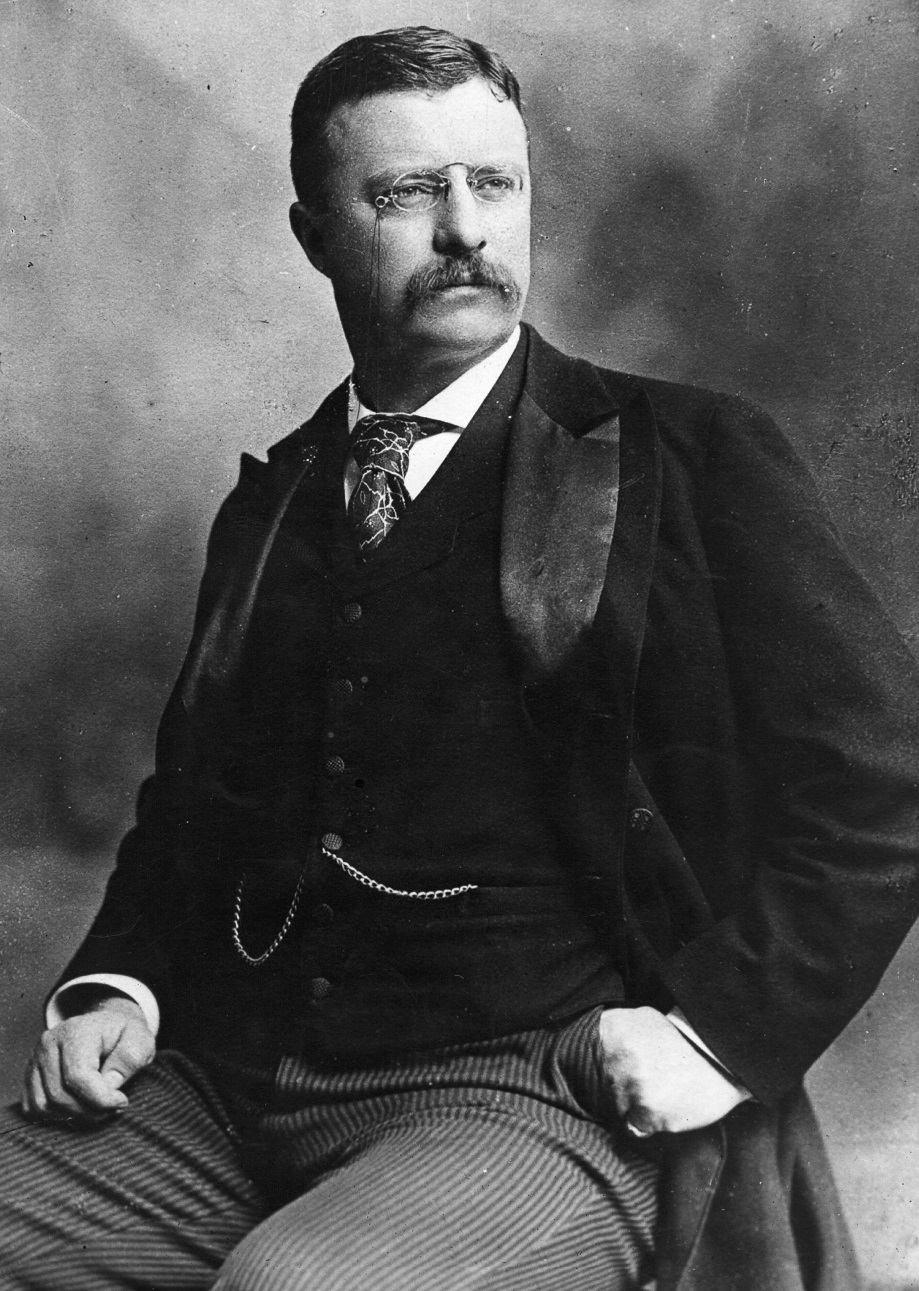
President Theodore Roosevelt
“These international bankers and Rockefeller-Standard oil interests control the majority of newspapers and the columns of these papers to club into submission or drive out of public office officials who refuse to do the bidding of the powerful corrupt cliques which compose the invisible government.”
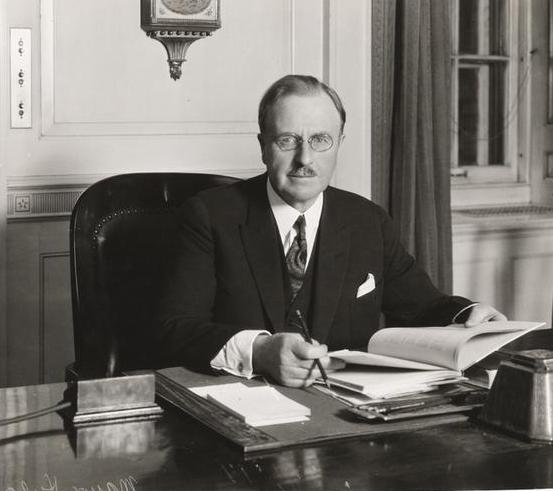
John Hylan, Mayor of New York, March 26, 1922
“The warning of Theodore Roosevelt has much timeliness today, for the real menace of our republic is this invisible government which like a giant octopus sprawls its slimy length over city, state and nation… It seizes in its long and powerful tentacles our executive officers, our legislative bodies, our schools, our courts, our newspapers, and every agency created for the public protection… To depart from mere generalizations, let me say that at the head of this octopus are the Rockefeller-Standard Oil interest and a small group of powerful banking houses generally referred to as the international bankers. The little coterie of powerful international bankers virtually run the United States Government for their own selfish purposes. They practically control both parties, write political platforms, make catspaws of party leaders, use the leading men of private organizations, and resort to every device to place in nomination for high public office only such candidates as will be amenable to the dictates of corrupt big business…These international bankers and Rockefeller-Standard Oil interests control the majority of newspapers and magazines in this country.”

President Woodrow Wilson
“We have come to be one of the worst ruled, one of the most completely controlled governments in the civilized world –no longer a government by… a vote of the majority, but a government of the opinion and duress of a small group of dominant men. Some of the biggest men in the United States, in the field of commerce and manufacture, are afraid of something. They know that there is a power somewhere so organized, so subtle, so watchful, so interlocked, so complete, so pervasive, that they had better not speak above their breath when they speak in condemnation of it.”
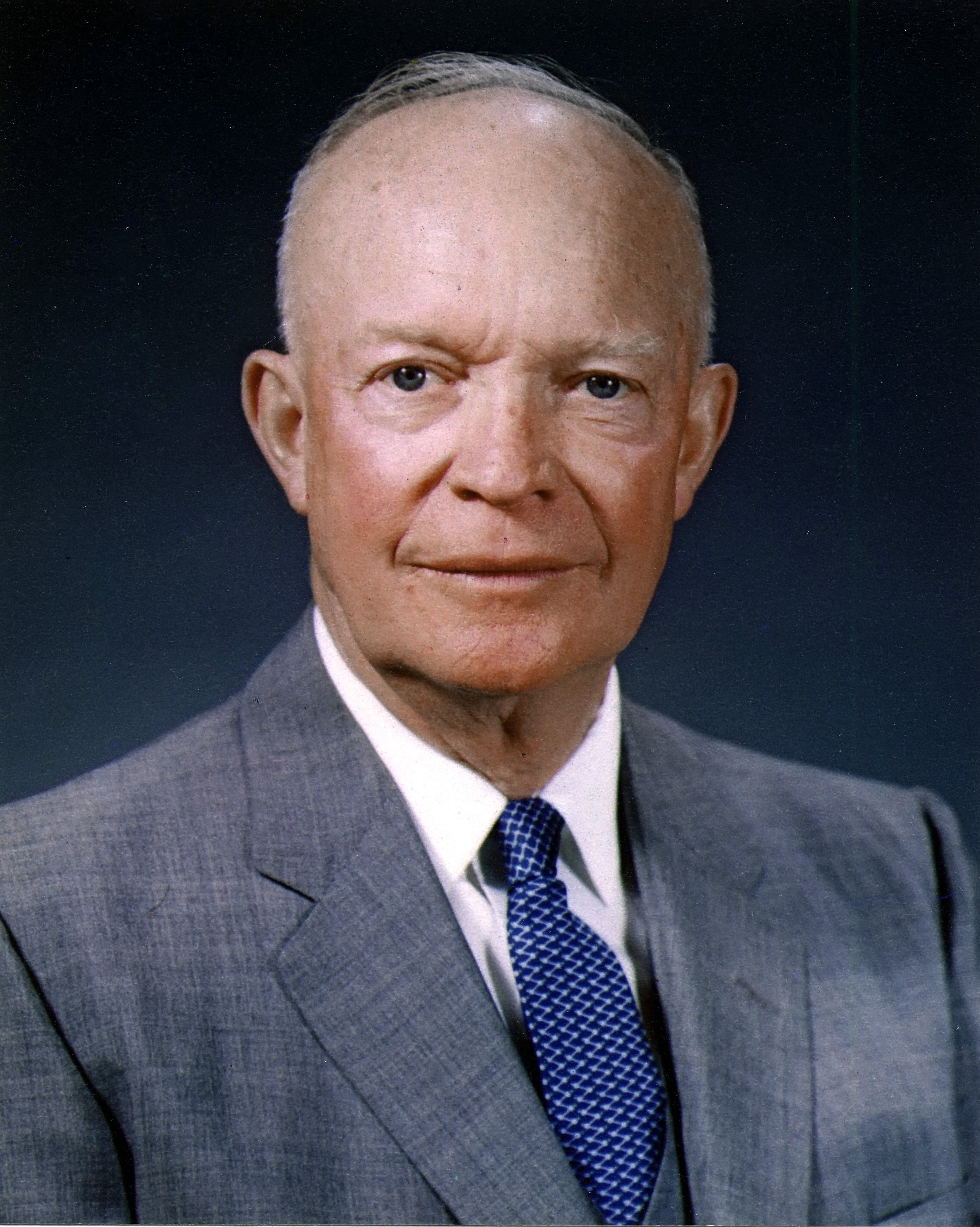
President Dwight Eisenhower
…we yet realize that America’s leadership and prestige depend, not merely upon our unmatched material progress, riches and military strength, but on how we use our power in the interests of world peace and human betterment.
Throughout America’s adventure in free government, our basic purposes have been to keep the peace; to foster progress in human achievement, and to enhance liberty, dignity and integrity among people and among nations. To strive for less would be unworthy of a free and religious people. Any failure traceable to arrogance, or our lack of comprehension or readiness to sacrifice would inflict upon us grievous hurt both at home and abroad…
A vital element in keeping the peace is our military establishment. Our arms must be mighty, ready for instant action, so that no potential aggressor may be tempted to risk his own destruction.
Our military organization today bears little relation to that known by any of my predecessors in peacetime, or indeed by the fighting men of World War II or Korea.
Until the latest of our world conflicts, the United States had no armaments industry. American makers of plowshares could, with time and as required, make swords as well. But now we can no longer risk emergency improvisation of national defense; we have been compelled to create a permanent armaments industry of vast proportions. Added to this, three and a half million men and women are directly engaged in the defense establishment. We annually spend on military security more than the net income of all United States corporations.
This conjunction of an immense military establishment and a large arms industry is new in the American experience. The total influence — economic, political, even spiritual — is felt in every city, every State house, every office of the Federal government. We recognize the imperative need for this development. Yet we must not fail to comprehend its grave implications. Our toil, resources and livelihood are all involved; so is the very structure of our society.
In the councils of government, we must guard against the acquisition of unwarranted influence, whether sought or unsought, by the military-industrial complex. The potential for the disastrous rise of misplaced power exists and will persist.
We must never let the weight of this combination endanger our liberties or democratic processes. We should take nothing for granted. Only an alert and knowledgeable citizenry can compel the proper meshing of the huge industrial and military machinery of defense with our peaceful methods and goals, so that security and liberty may prosper together.
Akin to, and largely responsible for the sweeping changes in our industrial-military posture, has been the technological revolution during recent decades.
In this revolution, research has become central; it also becomes more formalized, complex, and costly. A steadily increasing share is conducted for, by, or at the direction of, the Federal government.
Today, the solitary inventor, tinkering in his shop, has been overshadowed by task forces of scientists in laboratories and testing fields. In the same fashion, the free university, historically the fountainhead of free ideas and scientific discovery, has experienced a revolution in the conduct of research. Partly because of the huge costs involved, a government contract becomes virtually a substitute for intellectual curiosity. For every old blackboard there are now hundreds of new electronic computers.
The prospect of domination of the nation’s scholars by Federal employment, project allocations, and the power of money is ever present and is gravely to be regarded.
Yet, in holding scientific research and discovery in respect, as we should, we must also be alert to the equal and opposite danger that public policy could itself become the captive of a scientific-technological elite.
It is the task of statesmanship to mold, to balance, and to integrate these and other forces, new and old, within the principles of our democratic system — ever aiming toward the supreme goals of our free society.
Another factor in maintaining balance involves the element of time. As we peer into society’s future, we — you and I, and our government — must avoid the impulse to live only for today, plundering, for our own ease and convenience, the precious resources of tomorrow. We cannot mortgage the material assets of our grandchildren without risking the loss also of their political and spiritual heritage. We want democracy to survive for all generations to come, not to become the insolvent phantom of tomorrow.
Down the long lane of the history yet to be written America knows that this world of ours, ever growing smaller, must avoid becoming a community of dreadful fear and hate, and be instead, a proud confederation of mutual trust and respect.
Such a confederation must be one of equals. The weakest must come to the conference table with the same confidence as do we, protected as we are by our moral, economic, and military strength. That table, though scarred by many past frustrations, cannot be abandoned for the certain agony of the battlefield.
Disarmament, with mutual honor and confidence, is a continuing imperative. Together we must learn how to compose differences, not with arms, but with intellect and decent purpose. Because this need is so sharp and apparent I confess that I lay down my official responsibilities in this field with a definite sense of disappointment. As one who has witnessed the horror and the lingering sadness of war — as one who knows that another war could utterly destroy this civilization which has been so slowly and painfully built over thousands of years — I wish I could say tonight that a lasting peace is in sight”…

President John F. Kennedy
“The very word ‘secrecy’ is repugnant in a free and open society; and we are as a people inherently and historically opposed to secret societies, to secret oaths and to secret proceedings. We decided long ago that the dangers of excessive and unwarranted concealment of pertinent facts far outweighed the dangers which are cited to justify it. Even today, there is little value in opposing the threat of a closed society by imitating its arbitrary restrictions. Even today, there is little value in insuring the survival of our nation if our traditions do not survive with it. And there is very grave danger that an announced need for increased security will be seized upon by those anxious to expand its meaning to the very limits of official censorship and concealment…”
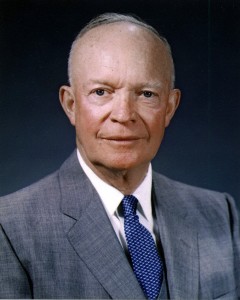
 e warning of Theodore Roosevelt has much timeliness today, for the real menace of our republic is this invisible government which like a giant octopus sprawls its slimy length over city, state and nation… It seizes in its long and powerful tentacles our executive officers, our legislative bodies, our schools, our courts, our newspapers, and every agency created for the public protection… To depart from mere generalizations, let me say that at the head of this octopus are the Rockefeller-Standard Oil interest and a small group of powerful banking houses generally referred to as the international bankers. The little coterie of powerful international bankers virtually run the United States Government for their own selfish purposes. They practically control both parties, write political platforms, make catspaws of party leaders, use the leading men of private organizations, and resort to every device to place in nomination for high public office only such candidates as will be amenable to the dictates of corrupt big business…These international bankers and Rockefeller-Standard Oil interests control the majority of newspapers and magazines in this country.”
e warning of Theodore Roosevelt has much timeliness today, for the real menace of our republic is this invisible government which like a giant octopus sprawls its slimy length over city, state and nation… It seizes in its long and powerful tentacles our executive officers, our legislative bodies, our schools, our courts, our newspapers, and every agency created for the public protection… To depart from mere generalizations, let me say that at the head of this octopus are the Rockefeller-Standard Oil interest and a small group of powerful banking houses generally referred to as the international bankers. The little coterie of powerful international bankers virtually run the United States Government for their own selfish purposes. They practically control both parties, write political platforms, make catspaws of party leaders, use the leading men of private organizations, and resort to every device to place in nomination for high public office only such candidates as will be amenable to the dictates of corrupt big business…These international bankers and Rockefeller-Standard Oil interests control the majority of newspapers and magazines in this country.”














